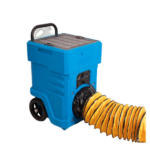Prep Your Home: Summer Window & Pressure Cleaning

As the summer sun shines brightly, it brings with it a unique set of challenges for homeowners, particularly when it comes to maintaining the cleanliness and appearance of windows and outdoor surfaces. The summer months often see an increase in dust, pollen, and other debris that can accumulate on windows, patios, and driveways. This buildup not only detracts from the aesthetic appeal of a home but can also lead to long-term damage if left unaddressed.
Regular cleaning during this season is essential to ensure that windows remain clear and surfaces are free from grime, allowing natural light to flood into living spaces and enhancing the overall ambiance of the home. Moreover, summer is an ideal time for pressure cleaning, which can effectively remove stubborn stains, mold, and mildew that thrive in warm, humid conditions. The combination of heat and moisture creates an environment conducive to the growth of these unwanted substances, particularly on outdoor surfaces like decks, siding, and walkways.
By utilizing pressure cleaning techniques during the summer months, homeowners can not only restore the original beauty of their exteriors but also prevent potential health hazards associated with mold and mildew. This proactive approach to cleaning can significantly extend the lifespan of various surfaces, making it a crucial aspect of home maintenance.
Key Takeaways
- Regular summer window and pressure cleaning enhances home appearance and prevents damage.
- Using appropriate cleaning products ensures effective and safe cleaning results.
- Following safety precautions is crucial for DIY cleaning to avoid accidents.
- Professional cleaning services offer expertise and save time for thorough cleaning.
- Consistent maintenance helps keep windows and surfaces clean longer and reduces future cleaning effort.
Benefits of Regular Cleaning
Engaging in regular cleaning practices offers a multitude of benefits that extend beyond mere aesthetics. One of the most significant advantages is the preservation of property value. Clean windows and well-maintained surfaces contribute to a home’s curb appeal, which is particularly important if homeowners plan to sell in the future.
Potential buyers are often deterred by properties that appear neglected or dirty, making regular cleaning an investment in the home’s long-term value. In addition to enhancing property value, regular cleaning promotes a healthier living environment. Dust, allergens, and pollutants can accumulate on windows and surfaces over time, leading to poor indoor air quality.
This is especially concerning for individuals with respiratory issues or allergies. By maintaining clean windows and surfaces, homeowners can reduce the presence of these irritants, creating a more comfortable and healthier atmosphere for their families. Furthermore, regular cleaning can help identify potential issues early on, such as water damage or pest infestations, allowing for timely interventions before they escalate into more significant problems.
Choosing the Right Cleaning Products
Selecting appropriate cleaning products is crucial for achieving optimal results while ensuring safety for both users and the environment. When it comes to window cleaning, many homeowners may be tempted to use harsh chemicals that promise quick results. However, these products can often leave behind streaks or residue that diminish the clarity of glass surfaces.
Instead, opting for eco-friendly solutions made from natural ingredients can be just as effective without posing risks to health or the environment. For instance, a simple mixture of vinegar and water can work wonders in cutting through grime while being gentle on both glass and surrounding surfaces. For pressure cleaning, choosing the right detergents is equally important.
Many pressure washers come with specific recommendations for cleaning agents that are compatible with their systems. Using the wrong type of detergent can lead to equipment damage or ineffective cleaning results. Biodegradable detergents are often recommended as they break down naturally without harming plants or wildlife in the vicinity.
Additionally, it’s essential to consider the surface being cleaned; for example, wood decks may require a milder cleaner compared to concrete driveways that can withstand stronger formulations.
Safety Precautions for DIY Cleaning
| Safety Precaution | Description | Recommended Tools/Equipment | Risk if Ignored |
|---|---|---|---|
| Wear Gloves | Protects skin from harsh chemicals and irritants. | Rubber or latex gloves | Skin irritation, chemical burns, allergic reactions |
| Use Eye Protection | Prevents splashes from entering eyes during cleaning. | Safety goggles or glasses | Eye irritation, chemical burns, vision damage |
| Ensure Proper Ventilation | Reduces inhalation of fumes and airborne particles. | Open windows, fans, or exhaust systems | Respiratory issues, dizziness, headaches |
| Read Labels Carefully | Follow instructions and warnings on cleaning products. | Product labels and manuals | Incorrect usage, toxic reactions, ineffective cleaning |
| Avoid Mixing Chemicals | Prevents dangerous chemical reactions (e.g., bleach and ammonia). | Separate containers for each product | Release of toxic gases, poisoning |
| Store Chemicals Safely | Keep cleaning agents out of reach of children and pets. | Locked cabinets or high shelves | Accidental ingestion, poisoning |
| Test on Small Area First | Ensures product does not damage surfaces. | Small cloth or sponge | Surface damage, discoloration |
| Use Appropriate Tools | Prevents injury and improves cleaning efficiency. | Brushes, mops, scrubbers suited for task | Injury, ineffective cleaning |
| Dispose of Waste Properly | Prevents environmental contamination and hazards. | Designated disposal containers | Environmental damage, health risks |
| Wash Hands After Cleaning | Removes residual chemicals and dirt. | Soap and water | Skin irritation, ingestion of chemicals |
While many homeowners take pride in tackling cleaning tasks themselves, it is vital to prioritize safety during these endeavors. When cleaning windows, especially those located on higher floors or hard-to-reach areas, using proper equipment is essential. A sturdy ladder should be employed, ensuring it is placed on a flat surface and secured to prevent slipping.
Additionally, wearing non-slip shoes can provide better traction while working at heights. It’s also advisable to have a partner present when performing high-altitude tasks; they can assist in stabilizing the ladder or providing support if needed. When it comes to pressure cleaning, safety precautions become even more critical due to the high-pressure water jets involved.
Protective gear such as goggles, gloves, and long-sleeved clothing should be worn to shield against potential injuries from flying debris or chemical splashes. Furthermore, understanding how to operate the pressure washer correctly is paramount; users should familiarize themselves with the machine’s settings and capabilities before starting any project. It’s also wise to keep bystanders at a safe distance during operation to prevent accidents caused by unexpected spray or debris.
Hiring Professional Cleaning Services
For those who may feel overwhelmed by the prospect of window and pressure cleaning or simply lack the time to dedicate to these tasks, hiring professional cleaning services can be an excellent solution. Professional cleaners bring expertise and specialized equipment that can achieve results far superior to what most homeowners can accomplish on their own. They are trained in various techniques tailored to different surfaces and understand how to handle challenging situations such as hard water stains or extensive mold growth.
Moreover, professional services often come with insurance coverage that protects both the workers and the property being cleaned. This added layer of security provides peace of mind for homeowners who may be concerned about potential damages or accidents during the cleaning process. Additionally, many professional cleaning companies offer customizable packages that allow homeowners to select specific services based on their needs and budget.
This flexibility ensures that clients receive tailored solutions that address their unique requirements while maintaining high standards of cleanliness.
Tips for Effective Window Cleaning
Achieving streak-free windows requires more than just a good cleaner; it involves employing effective techniques that maximize results. One fundamental tip is to clean windows on cloudy days rather than in direct sunlight. When sunlight hits glass surfaces directly, it can cause cleaning solutions to dry too quickly, leading to streaks and spots.
By choosing overcast days for window cleaning tasks, homeowners can ensure that their solutions have ample time to work effectively before drying. Another effective technique involves using the right tools for the job. A squeegee is an essential tool for achieving a streak-free finish; however, it’s crucial to use it correctly.
Starting at the top corner of the window and pulling down in a straight line helps prevent drips from forming on already cleaned areas. Additionally, wiping the squeegee blade with a clean cloth after each pass ensures that dirt and grime do not get reintroduced onto the glass surface. For those hard-to-reach areas or intricate window designs, microfiber cloths or soft-bristle brushes can be invaluable in ensuring thorough cleaning without scratching delicate surfaces.
Tips for Effective Pressure Cleaning
Pressure cleaning can be an incredibly effective method for revitalizing outdoor surfaces when done correctly. One key tip is to always start with a lower pressure setting before gradually increasing it as needed. This approach allows users to gauge how different surfaces respond without risking damage from excessive force.
For instance, while concrete surfaces can typically withstand high pressure, softer materials like wood may require gentler treatment to avoid splintering or gouging. Another important aspect of effective pressure cleaning is maintaining a consistent distance from the surface being cleaned. Holding the nozzle too close can lead to uneven cleaning results or damage, while standing too far away may not provide enough power to remove stubborn stains effectively.
A distance of approximately 12-18 inches is generally recommended for most surfaces; however, this may vary depending on the specific material being cleaned. Additionally, using sweeping motions rather than concentrated blasts helps ensure even coverage and prevents streaking.
Maintaining Clean Windows and Surfaces
Once windows and outdoor surfaces have been thoroughly cleaned, implementing a maintenance routine can help keep them looking pristine for longer periods. For windows, regular inspections are essential; checking for signs of dirt buildup or water spots allows homeowners to address issues before they become more challenging to manage. A quick wipe-down with a damp cloth every few weeks can help maintain clarity without requiring extensive deep-cleaning sessions.
For outdoor surfaces like decks and patios, periodic sweeping or hosing down can prevent dirt accumulation and inhibit mold growth. Applying sealants or protective coatings after thorough cleaning can also enhance durability against weather elements and stains. These preventative measures not only preserve the appearance of surfaces but also extend their lifespan significantly by reducing wear and tear caused by environmental factors.
In conclusion, maintaining clean windows and outdoor surfaces during summer is not merely about aesthetics; it plays a vital role in preserving property value and promoting health within living spaces. By understanding the importance of regular cleaning practices, selecting appropriate products, prioritizing safety measures, considering professional services when necessary, and implementing effective techniques for both window and pressure cleaning, homeowners can enjoy brightened interiors and revitalized exteriors throughout the season.



